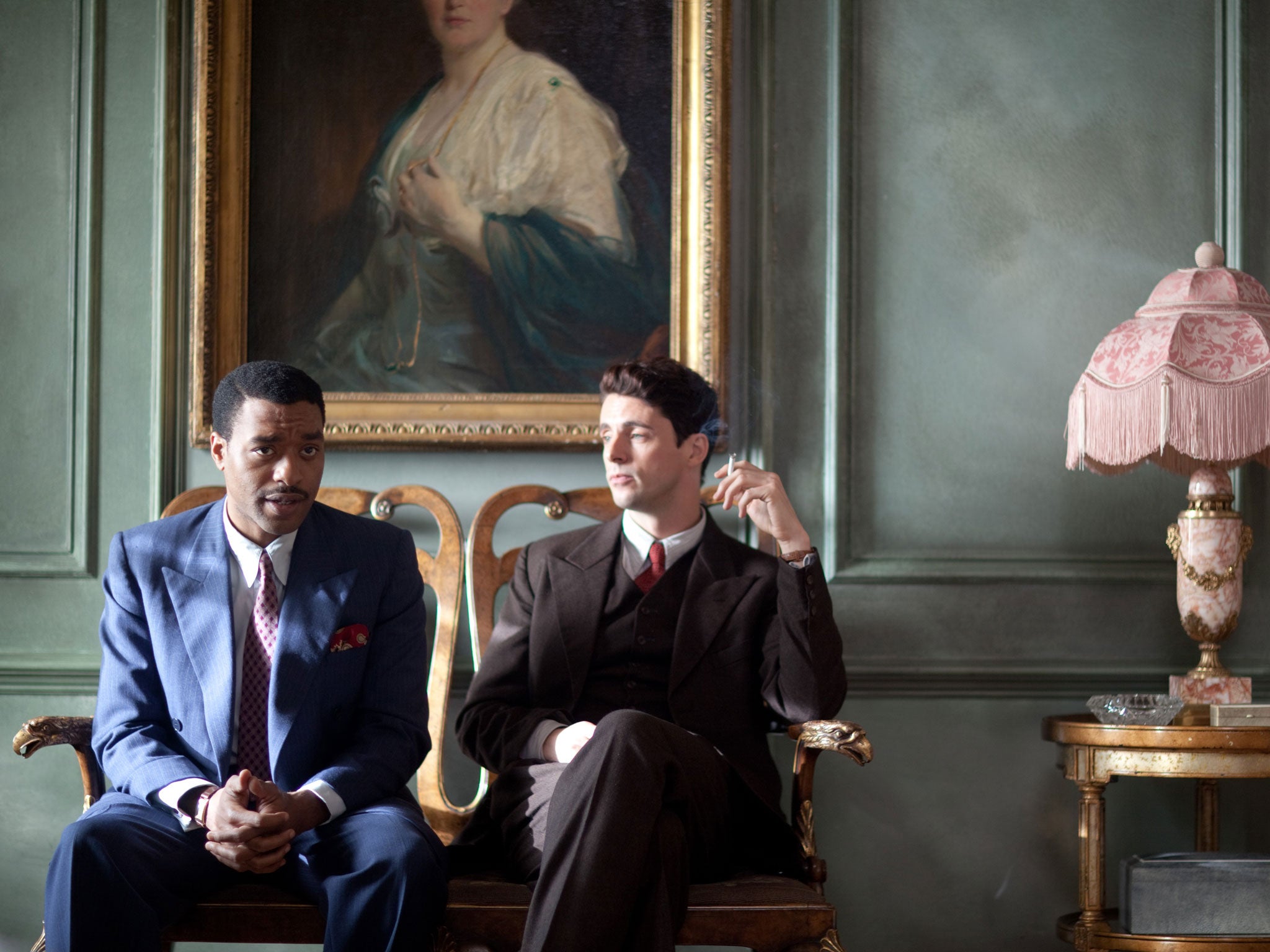Television review: Dancing on the Edge - Glittery frocks, dull chaps and not much jazz
Stephen Poliakoff’s long-awaited five-parter is taking an ominously long time to tune up…

Your support helps us to tell the story
From reproductive rights to climate change to Big Tech, The Independent is on the ground when the story is developing. Whether it's investigating the financials of Elon Musk's pro-Trump PAC or producing our latest documentary, 'The A Word', which shines a light on the American women fighting for reproductive rights, we know how important it is to parse out the facts from the messaging.
At such a critical moment in US history, we need reporters on the ground. Your donation allows us to keep sending journalists to speak to both sides of the story.
The Independent is trusted by Americans across the entire political spectrum. And unlike many other quality news outlets, we choose not to lock Americans out of our reporting and analysis with paywalls. We believe quality journalism should be available to everyone, paid for by those who can afford it.
Your support makes all the difference.The definitive novels about the jazz age, Evelyn Waugh's Vile Bodies and F Scott Fitzgerald's The Great Gatsby, had been published by 1930. So it's baffling that Steven Poliakoff has chosen to set Dancing on the Edge, his leisurely five-part drama about the birth of jazz in Britain, in 1932-33. The story is this: a rackety journalist discovers a band of black musicians and launches them on stuffy London society. So much to look forward to: the music! The dancing! The razzle dazzle of jazz hands and cocktail shakers.
The idea, presumably, was to do with music what The Artist did with the film industry –to pinpoint a moment of transition, and use it as a prism for looking at all those other changes: of race, class, and the end of fools in old-style hats. But you would have to set it 10 years earlier to have dowager duchesses raise their lorgnettes at the horror of trombones. The Original Dixieland Jazzband was already big in 1919.
And where was the fun? Instead of pounding beats and shrieks of joy, we got a starchy plod around the GCSE history syllabus, with a few mediocre tunes thrown in. It made Driving Miss Daisy seem like a romp. Where Michel Hazanavicius packed wit, novelty and pathos into 100 minutes of The Artist, Poliakoff took the first two episodes of five, one extra long, to leave the main characters as unformed as they were at the start.
At least, like so many makers of period drama, he was able to fall back on the good work of the costume and props departments. So the styling and lighting were immaculate: dress shirts couldn't have been starchier, and the tobacco light of the journalist's office was like a living sepia print. But if you are going to open with a lingering shot of a 1930s London street, why linger so long that we can see where the double yellow lines have been dusted over?
Many much more important questions went unanswered. Why does Stan Mitchell, Matthew Goode's hack-in-a-mac, pin all his hopes on the Louis Lester Band, when he hasn't even heard them play? And why are we supposed to root for the band's manager, Wesley, when he's so obnoxious? There were some pleasing cameos, like the Pooterish immigration clerk, who deserves his own series of The Diary of a Nobody. But for the most part, the acting was stagey and flat, not helped by a script that swerved from the mundane to the melodramatic. The portentous speeches forecasting the dawn of a new age, when "anything will be possible", were so artlessly bludgeoned into the storyline that there was no sense of surprise when, sure enough, anything turned out not to be possible. Oh dear, and I so wanted to love this.
So, thank goodness for Nashville, a stonking new series from America by Callie Khouri, screenwriter of Thelma and Louise. This is a proper, red-blooded, get-the-box-set drama that left me gasping with pleasure. Set in the world of mega-bucks country music, our heroine is Rayna James, a 40-something Shania Twain-alike singer at the top of her game. The baddy is Juliette Barnes, the younger and blonder new brat on the block. Rayna's record label says sales for the new album ain't performing so well, so they want her to share the tour with Juliette. Cue brewing bitch fight.
There's plenty more trouble at home: Rayna's husband has screwed up his business; her father is a millionaire bully with a hand in politics; and the man Rayna really loves, her guitarist, is being wooed by Juliette. Connie Britton as Rayna flips brilliantly between her private headaches and a public smile. Juliette, bitch though she is, has her own hinterland: her mother's a smack addict trying to borrow 50 bucks, and she is lost amid a sea of male record execs, who screw her while privately admitting she can't sing.
And what of the music? If the characters gasp in amazement, then we should too. It didn't happen in Dancing on the Edge, and, well, Rayna is no Tammy Wynette. But there's a kooky sub-plot featuring a waitress who writes poetry and a boy with a guitar. The duet they sing at the end of episode one was so gorgeous I had to Google it – and yes, it turns out that Claire Bowen and Sam Palladio have a joint singing career in real life.
Just one 40-minute episode of Nashville leaves you panting for more: it's a glossy new Dallas for our times, with all the glamour and pace of Gossip Girl. Isn't that what the jazz age was supposed to have been like?
Join our commenting forum
Join thought-provoking conversations, follow other Independent readers and see their replies
Comments